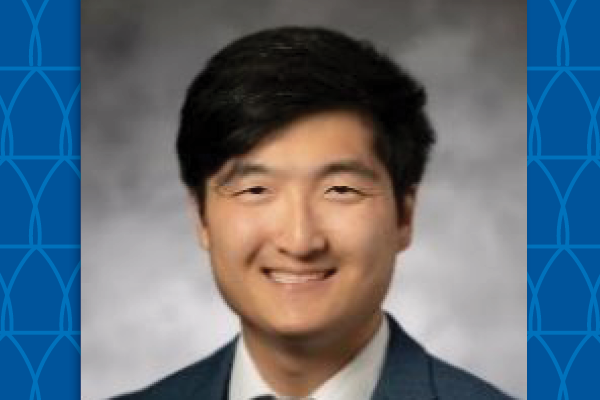Sunny Yang Liu

Sunny Yang Liu is a 3rd year medical student enrolled in the Master of Management in Clinical Informatics program. He is originally from Singapore, where he served in the military. Liu graduated from the University of Chicago and began his journey with Duke’s medical school in 2020. He plans to apply to the family medicine residency program within the Department of Family Medicine and Community Health.
What inspired you to apply to the program?
The first thing that appealed to me is that it is a one-year master's program. The second thing that really appealed to me was the data science component. I didn't major in that. I majored in chemistry and psychology, but part of my research prior to coming to Duke was heavy on genomics. And because of the computational component, I found myself drawn to it.
What do you find most unique about the program?
It's unique because it is a combination of business management and data science. This equips you with the ability to solve the modern-day healthcare problems wherever you go, whether as a resident, attending, or if you just want to work in the C-suite. In addition to talking about the background of healthcare, it also teaches you about the background of IT in healthcare settings. They explained how we ended up where we are today with the use of electronic health records (EHR). The program also teaches you management skills. So, you get an understanding of the technical skills and people skills you need to solve problems.
Describe the learning environment.
They really do treat you like adults and that means you're given a list of things to read and to work through. How much you take away really depends on the effort you put in. You’re also depending on your teammates because ideas don't come in a vacuum. I've been very lucky. Both my teams in the first half and the second half have been very effective. But, in terms of learning in this model, there's been challenges. For example, I'm weaker on managerial components, I have teammates who are stronger at it. Watching how they tackle these problems helps me learn.
What have you learned from MMCi?
One, there's problems everywhere. Two, it teaches you the context of those problems. Three, you learn how to solve and work through those problems. That makes me feel very equipped to start tackling problems wherever I go.
Explain how this process happens.
Every quarter we have one, if not two of these courses where you're solving an in-depth problem. It’s basically your final project. You work through how someone in a healthcare setting, or in a business firm, might want to approach an issue. You write a final paper where you explain the rationale and why it’s important. Then, the presentation forces you to focus on what's important to appeal to senior leadership. This is realistic because just having a good idea isn't enough to solve a problem. You need to figure out how to make it work. And I think that's where MMCi really shines.
How has MMCi changed your perspective on healthcare?
It gave me a deeper understanding of not just the health of the patients, but also the existence of the communities and the factors that affect their economy. For example, we always talk about how rural healthcare facilities are dealing with staff shortages and that more doctors are needed. But one of the more interesting things that they touched on, during orientation (the first week of MMCi) is, the subtleties that we don't consider. For example, when patients leave the rural healthcare setting to see someone at Duke for healthcare, it is great for Duke. But at the same time, it takes money away from the rural areas and instead brings it into Durham. In essence, you are taking away from an area that’s already struggling and that is one of the things that I didn't really consider. That changes the way I plan to practice medicine in the future. I gained an understanding of the need for rural healthcare goals beyond just accessibility, and it really is key to the survival of these rural communities.
How do you plan to apply what you’ve learned from MMCi in the next phase of your medical career?
There’s a lot of areas in family medicine that can be improved with just understanding and using more data, especially with the population health information.